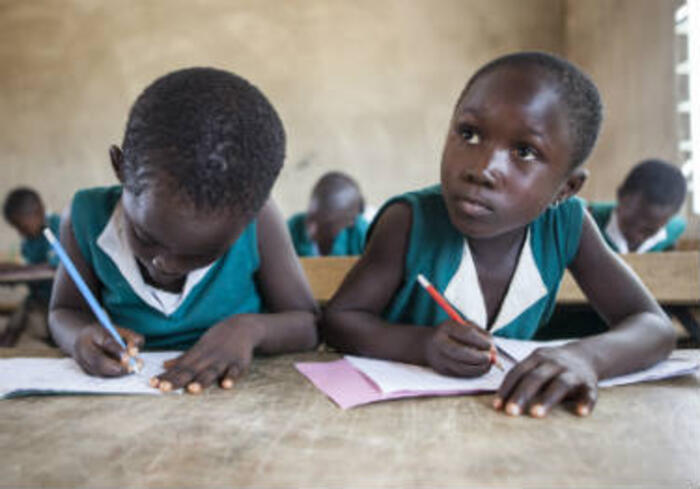Biakoye District:
Our Education Work

Children’s lives can change through education both today and in future generations. Yet, there are still significant disparities in children’s learning possibilities in the Biakoye District. Access to a high-quality education, which has a multiplier effect and helps everyone in the long run, is necessary for the achievement of many other rights.
Given this situation, we base our operations on the achievement of one of our key goals: that every kid, especially those who are in the most vulnerable situations, has access to a basic education of high quality.
All development objectives, including promoting gender equality, enhancing maternal and child health, reducing hunger, halting the spread of illness and battling poverty, promoting economic growth, and fostering peace, are connected to education.
The government of Ghana has prioritized children under the age of 5 as those in the greatest need, with early childhood care and development as a basic focus area. The Children’s Act defines early childhood development (ECD) as encompassing ‘processes of emotional, cognitive, sensory, spiritual, moral, physical, social, and communication development of children from birth to school-going age’.
Our early childhood care and development program is a comprehensive approach to policies and programs that provide young children with the active participation of their parents and caregivers, aimed at promoting a child’s right to grow and develop.
Scaling up our early childhood care and development services for young children is expensive, complex, and involves all three tiers of government and civil society. A holistic approach is required that ensures access for all young children to an appropriate standard of care and monitors progress.
Working in the Nkwanta North District
- We transform existing creches into Centers of Excellence.
- We speak for children by raising awareness of the challenges faced by the majority of children under 5.
- We support the local government and civil society by coordinating service delivery and building partnerships with local government, civil society, business, the media, and communities.
- We engage with parents, caregivers, and communities to help them acknowledge their own roles and responsibilities.
- We take positive learnings from these initiatives and apply them to other disadvantaged and low-income communities to achieve results at scale across provinces.
